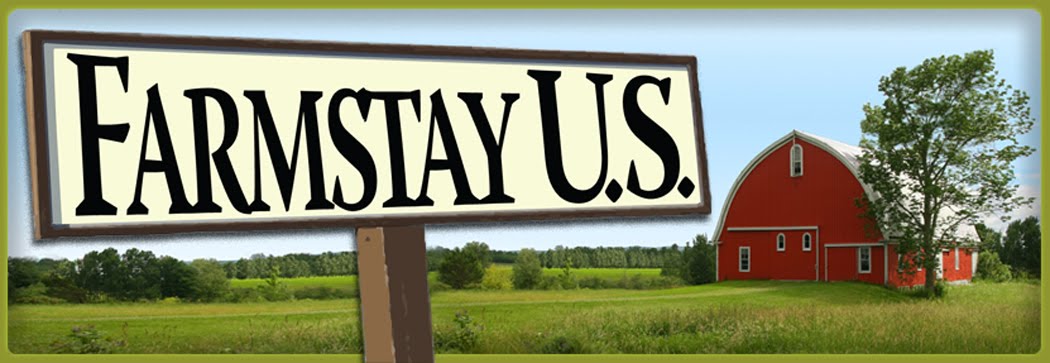Also, Homegrown.org, an offshoot of Farm Aid, recently highlighted farm vacations, along with this photo from Liberty Hill Farm in Vermont.When visiting a city, I generally like to stay in the city. I want to be able to step outside of my lodging directly into the fray. I want to wander all day down cobble stones streets, and then be able to totter home after a few drinks to fall asleep to the sounds of the city. But in some areas, the way of life is more rural. In these places, I want to get the full experience. Here, I want to look out my window and see rolling fields. I want to see how the people live off the land, and I want to retire each night to watch the sunset from my deck while eating food produced just a few steps from where I'm standing. In these places, I want to stay at an agritourismo.
Like a bed and breakfast, and agritourismo is family run and generally offers breakfast included in the accommodation. But an agritourismo or farm stay also offers much more. Guest will get an education in farming while immersing themselves in nature – horseback riding, wandering through fields, and learning about (or even helping with) the operations of the property.
---------
Strength in Diversification
Recent news tidbits from throughout the USA have discussed the importance of farm diversification for long-term viability, particularly in this economy. Here are four examples:
3. Check out this 5-minute video report about Oklahoma agritourism. The interviewees stress again and again that long-term economic viability, for farmers, goes hand-in-hand with diversification. "It's like a bathtub," says one farmer, "You wouldn't want to build one with only one leg."
4. Agritourism speaker and consultant Jane Eckert urges farmers to consider blogging as part of their direct-to-consumer marketing plan. The importance of diversification, clearly, applies to marketing as well as crops.
1. A Georgia agritourism farm was selected to be the Bulloch County Farm Family of the Year. The family switched from traditional row cropping to growing fruits and vegetables, while also adding agritourism in 2001. "It's important," said awardee Al Clark, "There's many, many kids that the only time they see a farm is when they come to ours."
5. Community members in S. Woodstock, VT have come together to buy a bankrupt water buffalo farm to save it from becoming a lamb feedlot and slaughterhouse, according to an article in the Rutland Herald. The Woodstock residents who united to buy the farm plan to turn it into an innovative dairy, creamery, and education center. Considering the dire situation of VT dairy farms - who are receiving $1.20 for a gallon of milk that costs $1.80 to produce - the future of a diversified dairy that offers cheesemaking classes and processes its own milk will be interesting to watch.
----------
Legislation
In Goodhue County, Minn., planning commissioners are trying to resolve conflicts between a winery and its neighboring residents. Because agritourism is not addressed in county ordinances, some of the winery's neighbors have complained that the winery's agritourism activities are illegal. According to an article in the Red Wing Republican Eagle,
"Commissioners say they want some authority over agri-tourism to ensure out-county areas keep their rural feel and that people remain safe. They don't want that oversight disrupting farmers who depend on selling their goods to make a living."Because agritourism is growing and remains largely ignored in the lawbooks, I expect we'll see a growing amount of agritourism legislation, as communities seek a balance between retaining their rural character and welcoming visitors to their area.












.jpg)